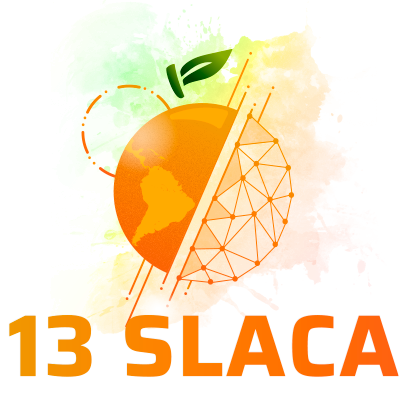Anais do Simpósio Latino Americano de Ciências de Alimentos
Anais do 13º Simpósio Latino Americano de Ciência de Alimentos
OBTAINING XYLO-OLIGOSACCHARIDES FROM SUGARCANE STRAW USING RECOMBINANT ENDOXYLANASE
Como citar esse trabalho?
Para citar este trabalho use um dos padrões abaixo:
Como citar esse trabalho?
Xylo-oligosaccharides are one of the classes of prebiotics that can be obtained from lignocellulosic biomass, by the hydrolysis of hemicellulose, abundant in agroindustrial residues. The success of the process depends on the constitution of this hemicellulose and the use of conditions that favor the conversion to xylo-oligosaccharides, minimizing the production of unwanted by-products. Several endoxylanases were studied in order to provide better conversion of the biomass to xylo-oligosaccharides. The agroindustrial residue of sugarcane straw is rich in xylan, which after extraction can be hydrolyzed to xylo-oligosaccharides. The resulting product presents multi-benefits, favoring the intestinal microbiota and acting in maintaining the viability of probiotics in food. The present work aimed to apply sugarcane straw residue to the production of xylo-oligosaccharides by means of the action of thermostable recombinant endoxylanase of Cryptococcus flavescens, which presented potential for XOS production in previous works whose gene was expressed in Pichia pastoris GS115 using the extracellular expression vector pGAPZα. Hemicellulose was extracted from deacetylated sugarcane straw applying 24% KOH and 1% NaBH4, neutralized with acetic acid and precipitated in cold ethanol overnight. The xylan was characterized and subjected to 48h of hydrolysis at 65°C using concentrated enzyme, secreted by the transformed cells. The recovery of extracted hemicellulose was 76.92% of the original hemicellulose content of the straw, and the extracted mass presented 88.6% purity, 75.10% from the xylose units and 13.50% from arabinose units and no reducing sugars were detected. The main product of hydrolysis was xylobiose, 12.81%, followed by xylose, 6.16%, and no inhibitory compounds were detected. The alkaline extraction allowed high recovery of hemicellulose, accessible to the unpurified recombinant hydrolytic enzyme, showing both potential candidates for the sustainable production of xylo-oligosaccharides. Better yields of hydrolysis and greater diversity of xylo-oligosaccharides can be obtained by altering the hydrolysis conditions, such as temperature and time.
- 1 Departamento de Engenharia de Alimentos / Faculdade de Engenharia de Alimentos / Universidade Estadual de Campinas
- 6. Bioquímica e Biotecnologia de Alimentos (BB)
Discussões Científicas de Qualidade
Com ~200 mil publicações revisadas por pesquisadores do mundo todo, o Galoá impulsiona cientistas na descoberta de pesquisas de ponta por meio de nossa plataforma indexada.
Confira nossos produtos e como podemos ajudá-lo a dar mais alcance para sua pesquisa:
Como citar esse proceedings?
Esse proceedings é identificado por um DOI , para usar em citações ou referências bibliográficas. Atenção: este não é um DOI para o jornal e, como tal, não pode ser usado em Lattes para identificar um trabalho específico.
Verifique o link "Como citar" na página do trabalho, para ver como citar corretamente o artigo

